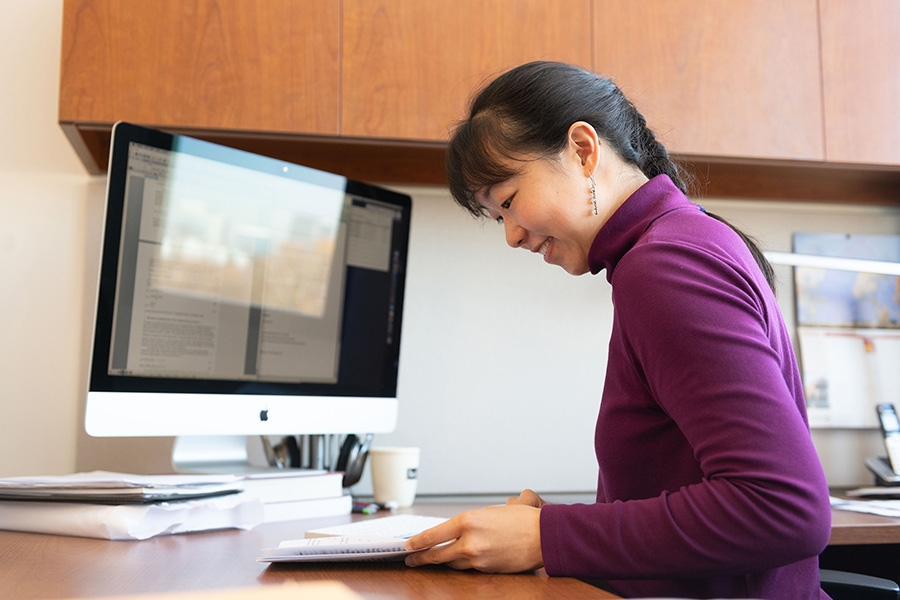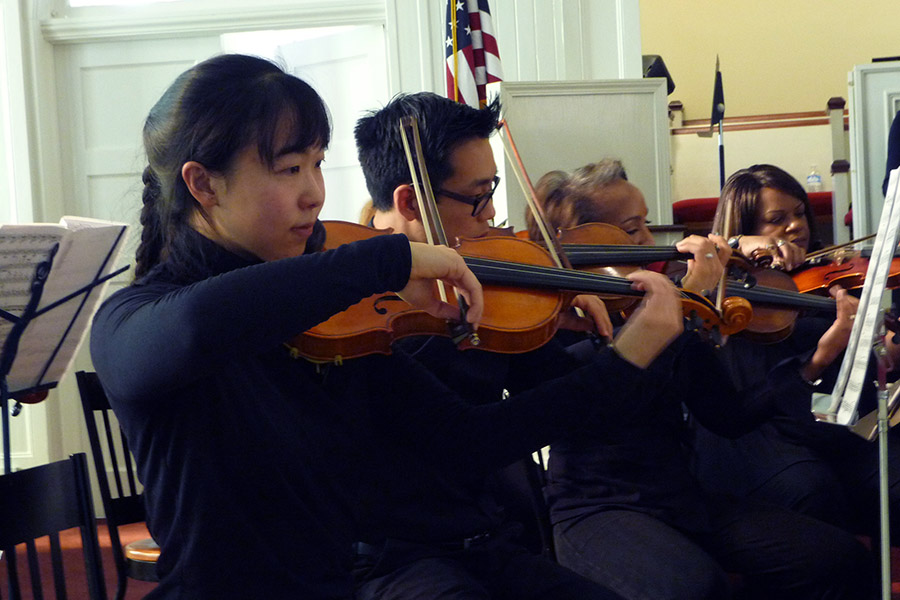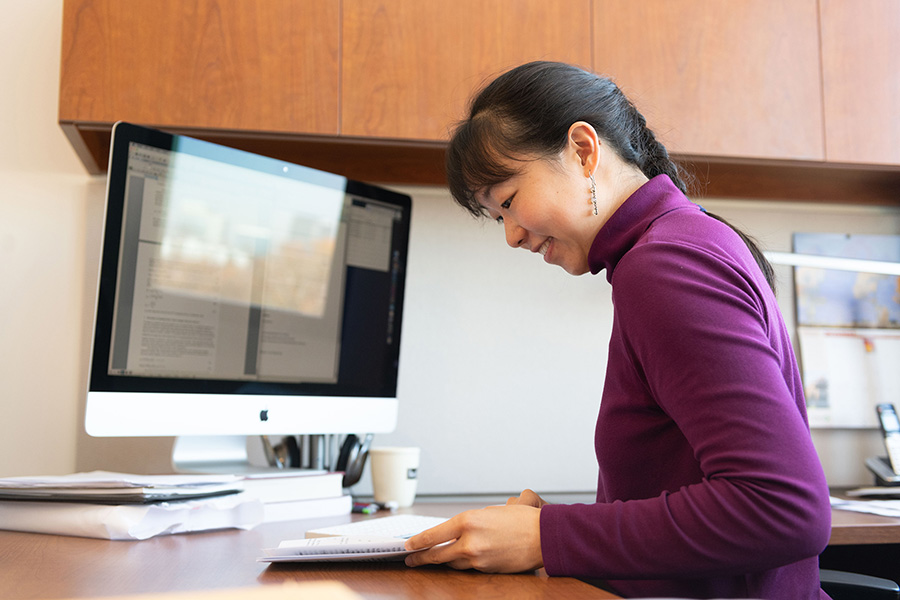
By Victor Rogers, Georgia Tech News Center
For Iris Tien every road, bridge, or building is a potential research project. As an assistant professor in the School of Civil and Environmental Engineering, her research focuses on structures and infrastructure systems. She studies ways to design better buildings, bridges, and distributed networks. The objective is to design water distribution systems, power networks, and transportation systems that perform better under various circumstances such as natural disasters, outages, or other disruptions and also can withstand aging, degradation, and climate change.
“My research definitely affects how I look at the world around me,” said Tien, who currently has a project looking at corrosion on bridges. “Now, every time I go under a bridge, I’m looking at the columns.”
In recent years, much attention has been given to the United States’ aging infrastructure. Tien welcomes the discussion.
“It has been a transition to have politicians and the public see the importance of infrastructure and how it supports economic growth,” Tien said. “The open question is where to best spend money on infrastructure. One part of our research looks at how to identify the most critical parts of a system and to prioritize investment.”
Tien’s research group also looks at how failures in different parts of a network can propagate through the system and affect other areas. One example they studied was when a massive fire caused part of a bridge on I-85 in Atlanta to collapse in March 2017.
“When I saw that the I-85 bridge collapse had happened, I, of course, was happy that no one was hurt,” she said. “At the same time, the research side of me got excited because something happened in the real world that we could study. This was a case where we could have a specific event happen, and then look at real data across the network. We have models, but we could use this system to calibrate the models to better reflect the real world.”
Her research also looks at the interdependencies between infrastructure systems. Previously, infrastructure systems, like water and power, were designed in silos, but infrastructure is becoming increasingly connected, she said.
One of Tien’s projects, funded by the National Science Foundation, looks at theoretical advancements of how to model and capture the effects across networks.
Another of her projects focuses more on the application side. It is through the Department of Homeland Security and is a collaboration between Georgia Tech and several departments within the city of Atlanta.
“It’s really important to be able to talk across departments,” Tien said. “This project brings some of our research into the real world, looking at real-world systems and working with stakeholders to determine what is important to them. It allows us to transfer our research from the lab to have an impact on real systems.”
 Iris Tien playing violin with the Atlanta Musicians Orchestra. Music is one of the two activities that figure prominently in Tien's life. She also loves sports, especially tennis and basketball, and she plays as often as she can. (Photo Courtesy: Iris Tien) |
There to Here
When she was younger, Tien wanted to be an architect because she thought it would be cool to design buildings. After visiting an architecture firm, she realized it was the actual building process that was more interesting to her.
“I thought in more detail about what I wanted to do, and I chose civil engineering as a more concrete way to contribute to that type of work,” she said.
She grew up in the California Bay Area and attended U.C. Berkeley for her bachelor’s, master’s, and doctoral degrees. She received job offers from several universities, and her final decision came down to Tech and one other school.
“I made a huge matrix of all of the different factors that I thought would make me happy in a particular job,” she said. “In the end, I chose Georgia Tech because of a feeling that I had when I visited. It’s a nice, collegial environment. And it’s a highly ranked school with great students and colleagues. And, Atlanta is a great place to live.”
Tien enjoys walking and being outdoors, especially when she’s trying to solve a problem.
“Being in nature is nice, seeing the sky, and seeing leaves and flowers in the spring. When you’re not sitting at your desk focusing on the problem, that’s when ideas come up, and solutions to problems that seemingly had been hard to solve appear.”
When she isn’t working, Tien has two pastimes that are very important to her: sports and music. She plays tennis as often as possible, and she plays a weekly pickup basketball game near Emory University.
“On the music side, I play violin in a community-based orchestra — the Atlanta Musicians Orchestra — and I sing in a choir,” Tien said. “I like classical music, and it works a part of the brain that’s a little different from the engineering side. When I’m learning a violin piece, I can feel my brain making these connections. It’s kind of ‘math and sciencey’ with the different notes and how it’s put together, but it also has this artistic side which is fun to explore.”

